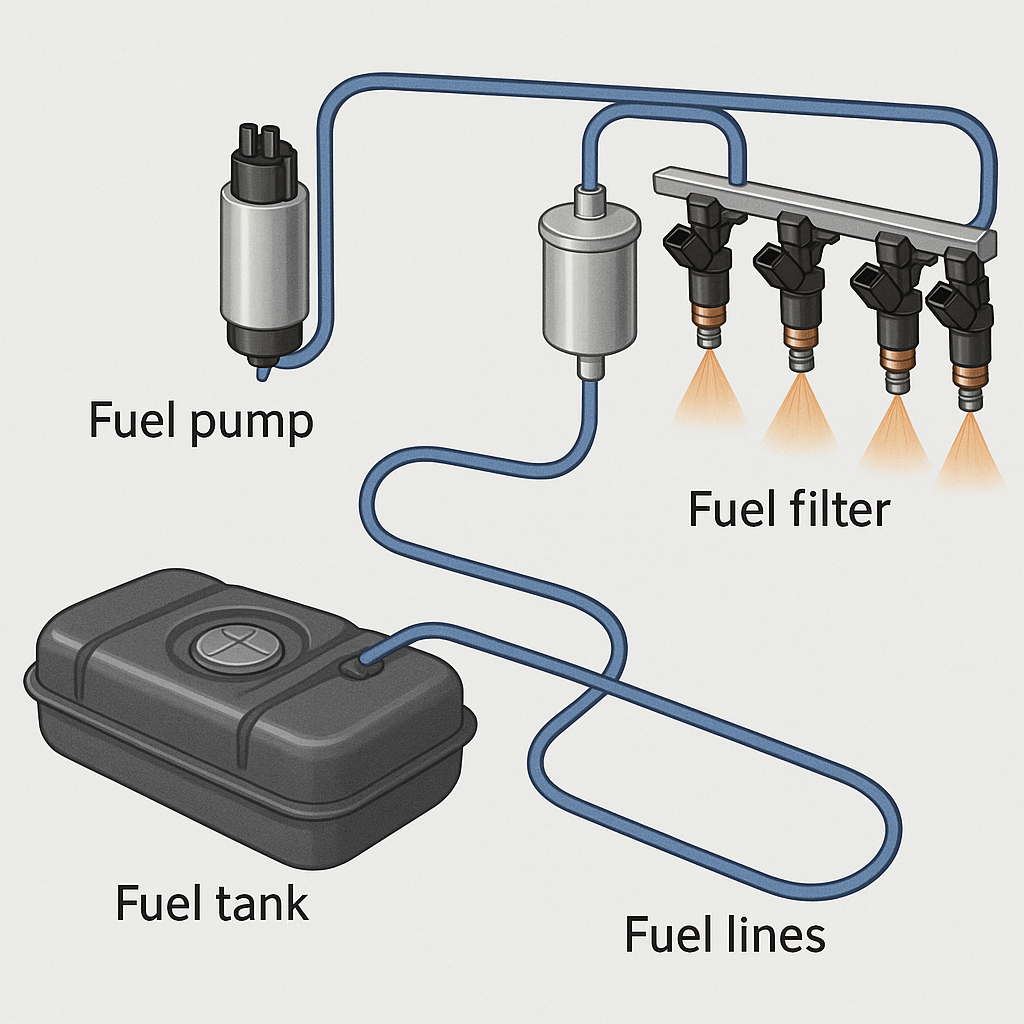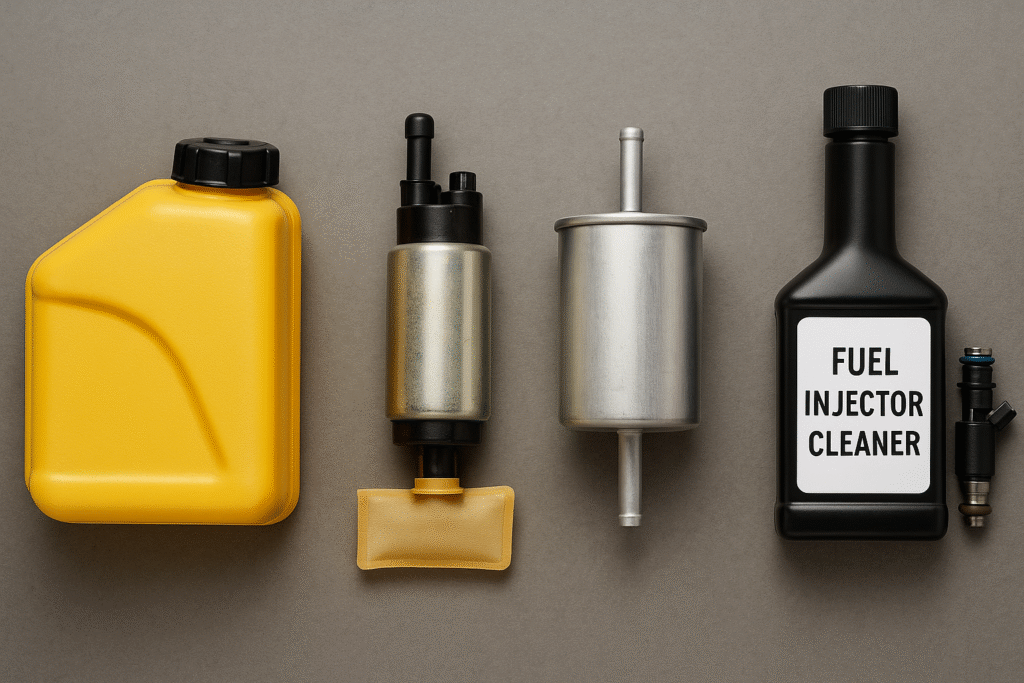Your vehicle’s fuel system is its lifeline. Without a properly functioning fuel system, even the most powerful engine won’t perform to its full potential. From the fuel pump that moves fuel from the tank to the engine, to the fuel injector that precisely sprays it into the combustion chamber, every component plays a crucial role. Maintaining these parts and understanding how they work can improve performance, extend the life of your car, and even save you money in the long run.
In this guide, we’ll walk through every major element of the fuel system, discuss how factors like national fuel prices can influence your maintenance choices, explore specialty fuels like G Fuel, and explain why tools like a fuel injector cleaner and a clean fuel filter are essential for your vehicle’s health.
1. What Is a Fuel System?
A fuel system is a network of components that store, filter, deliver, and inject fuel into an engine for combustion. Its main goal is to supply fuel at the right pressure and in the correct amount for efficient engine operation. Whether you drive a small hatchback, a heavy-duty truck, or a high-performance sports car, the basics remain the same.
Key components include:
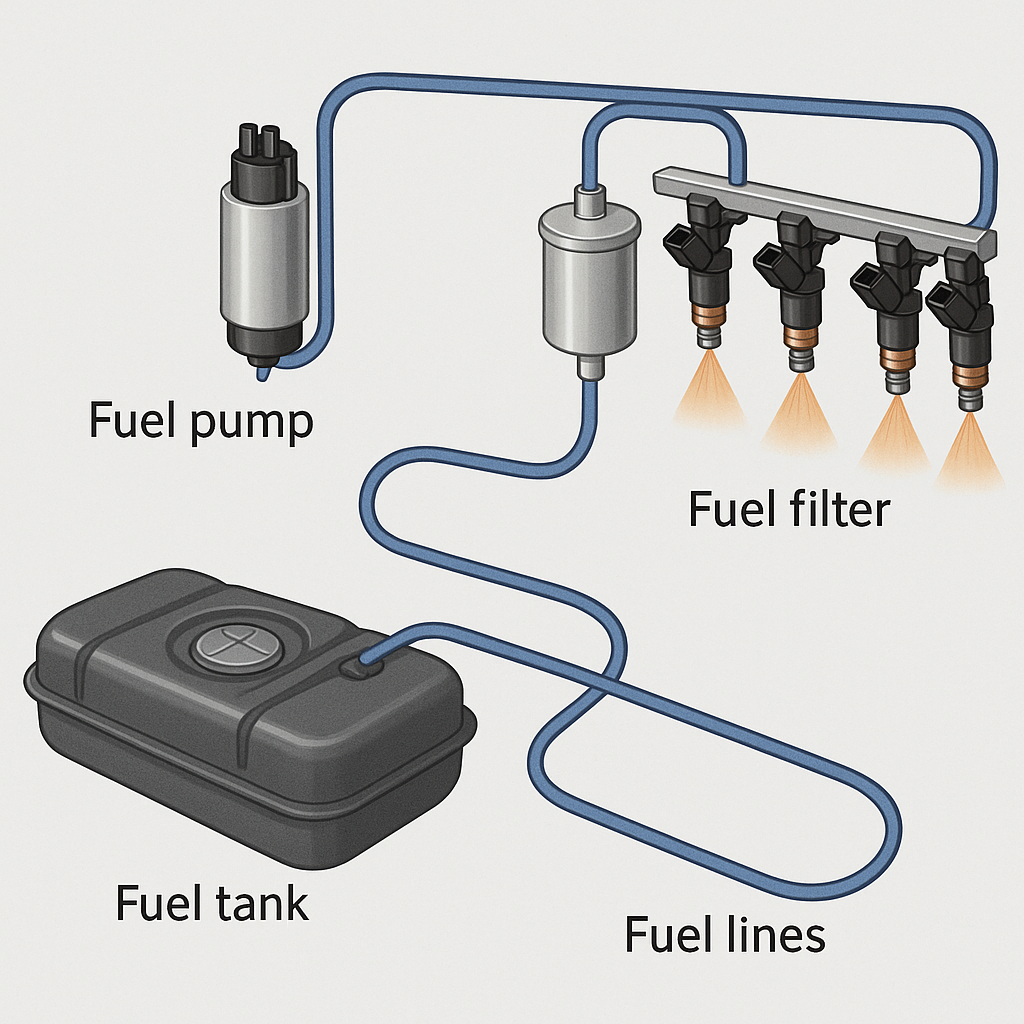
- Fuel Tank – Stores the fuel safely until it’s needed.
- Fuel Pump – Delivers fuel from the tank to the engine.
- Fuel Filter – Removes dirt, debris, and impurities.
- Fuel Injectors – Precisely spray fuel into the engine’s cylinders.
- Fuel Lines – Transport fuel between components.
2. The Role of the Fuel Pump
The fuel pump is the workhorse of the fuel system. Without it, fuel wouldn’t make its way from the tank to the engine. Most modern vehicles use an electric fuel pump located inside the fuel tank, which ensures constant pressure and steady fuel delivery.
A failing fuel pump can cause:
- Engine misfires
- Loss of power
- Difficulty starting the vehicle
- Poor acceleration
Maintenance Tip: Using high-quality fuel and keeping your tank above a quarter full can help prolong your fuel pump’s life. Contaminated or poor-quality fuel can damage the pump over time.
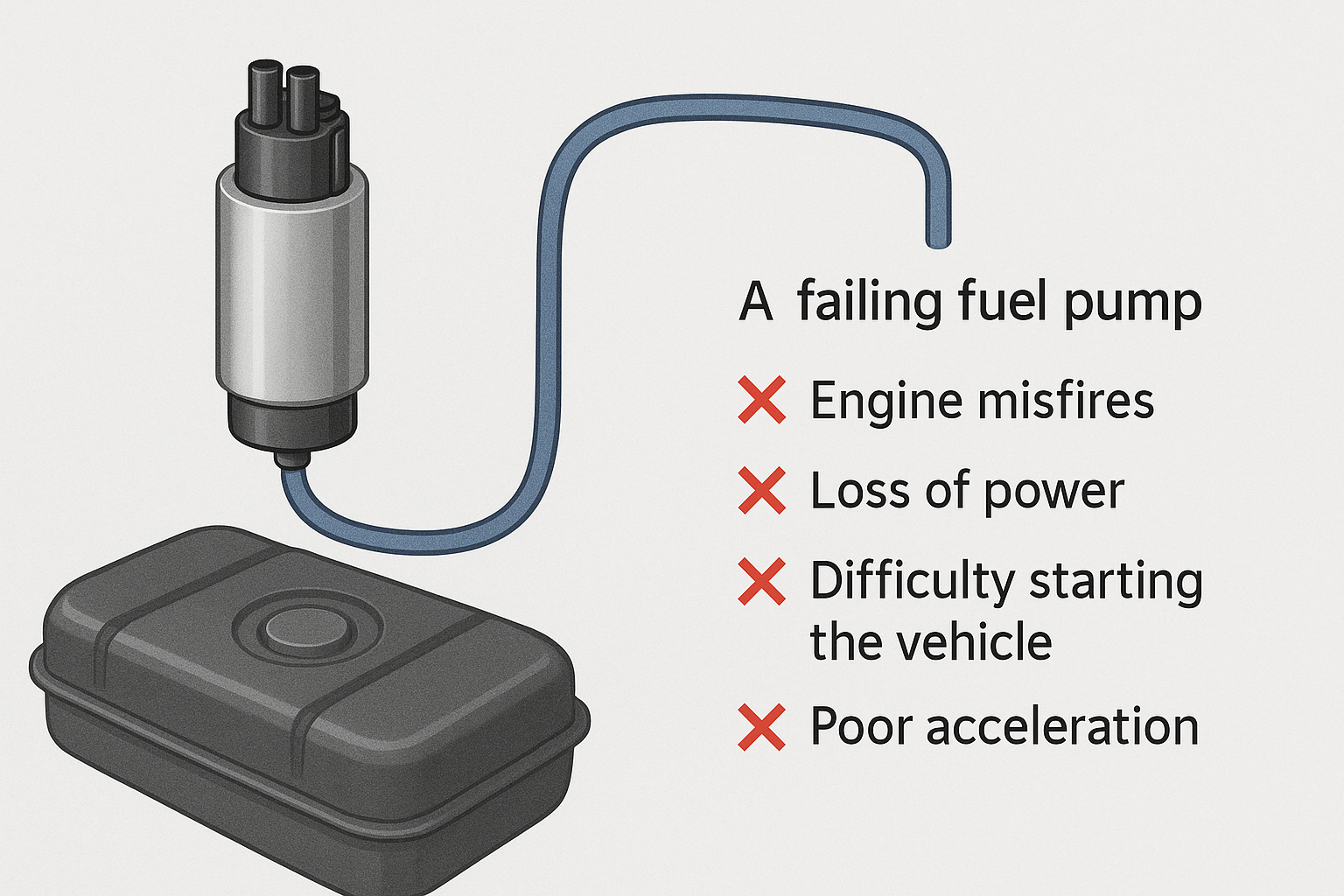
3. Understanding the Fuel Filter
The fuel filter is your car’s first line of defense against debris and contaminants. It traps dirt, rust particles, and other impurities before they can reach the fuel injectors or engine.
A clogged fuel filter can lead to:
- Reduced fuel flow
- Hard starts
- Engine hesitation
- Increased strain on the fuel pump
Recommendation: Replace your fuel filter every 20,000–40,000 miles or as recommended by your manufacturer. This becomes even more important if fluctuating national fuel prices tempt you to opt for lower-cost fuel, which may contain more impurities.
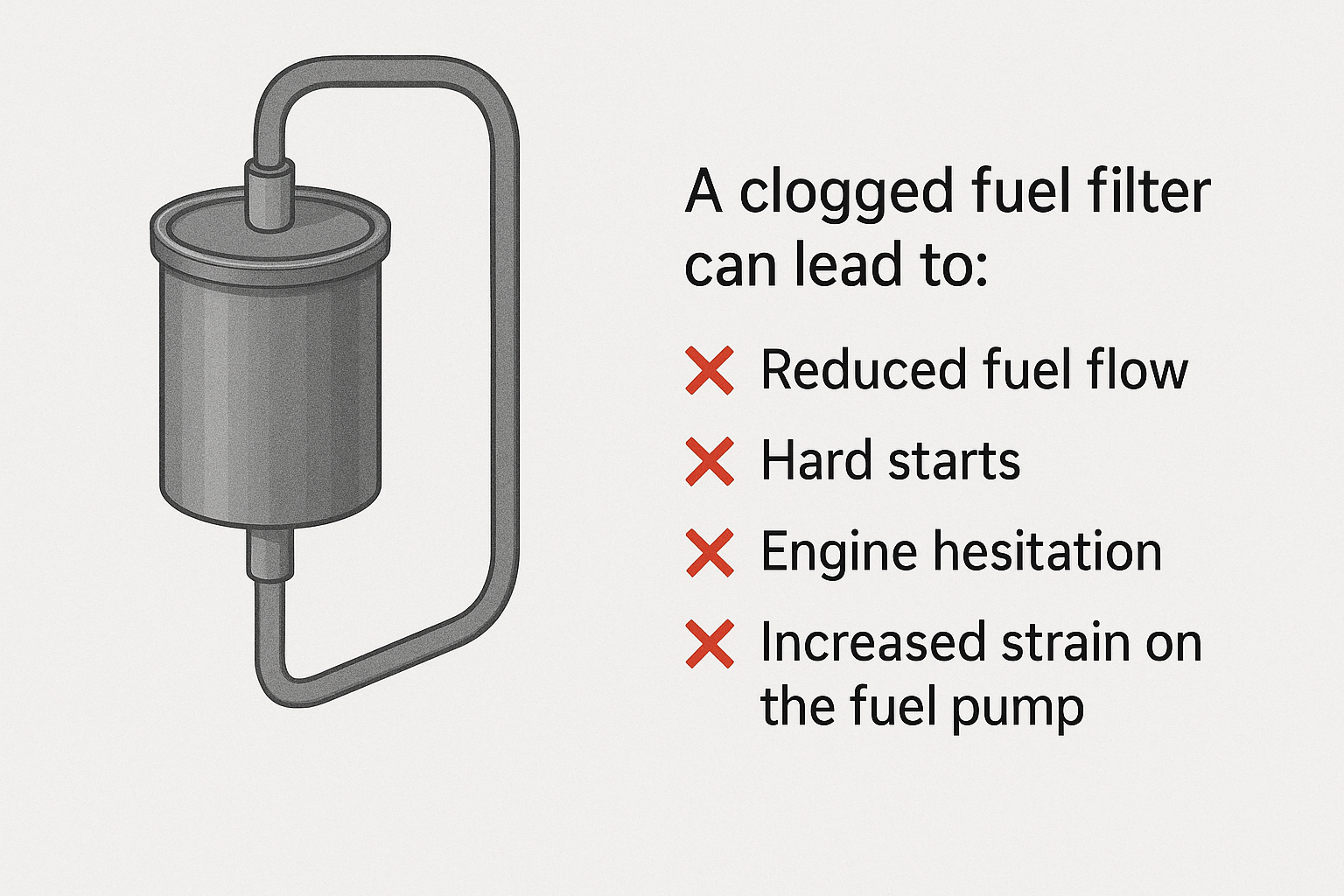
4. Fuel Injectors: The Precision Players
Fuel injectors are small but powerful components that spray atomized fuel into the engine’s combustion chamber for efficient burning. Each injector must deliver the right amount of fuel at the correct time.
Over time, fuel injectors can become clogged due to carbon buildup or impurities in the fuel. This can result in:
- Rough idling
- Poor fuel economy
- Increased emissions
- Engine misfires
5. The Importance of Fuel Injector Cleaner
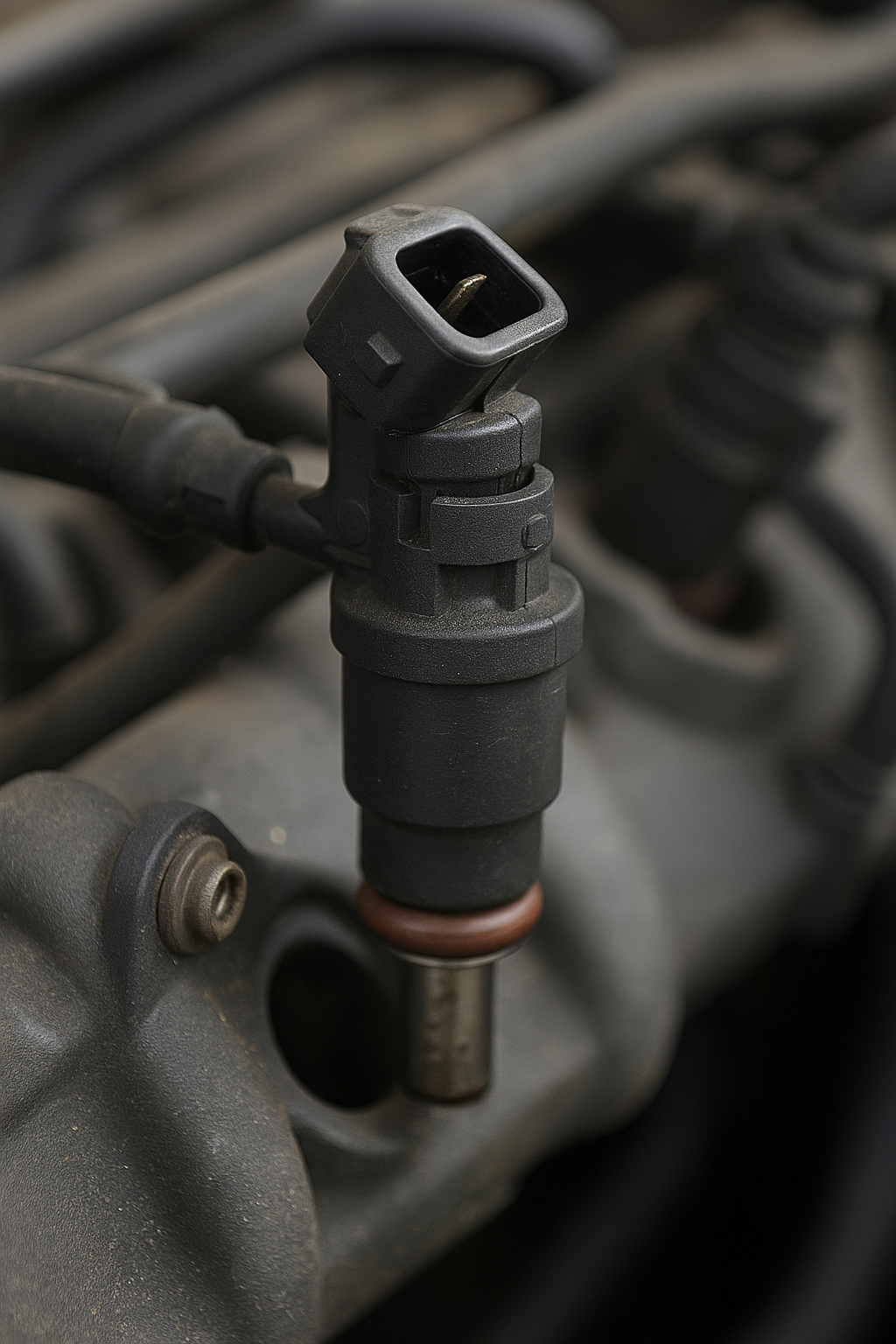
A fuel injector cleaner is a specially formulated additive that helps remove carbon deposits and buildup from injectors. By restoring proper spray patterns, it improves combustion, boosts fuel economy, and reduces harmful emissions.
Benefits of Regular Use:
- Restores lost power
- Improves throttle response
- Increases fuel efficiency
- Extends injector life
Tip: Use a quality fuel injector cleaner every few thousand miles, especially if you frequently use lower-grade fuels due to high national fuel prices.
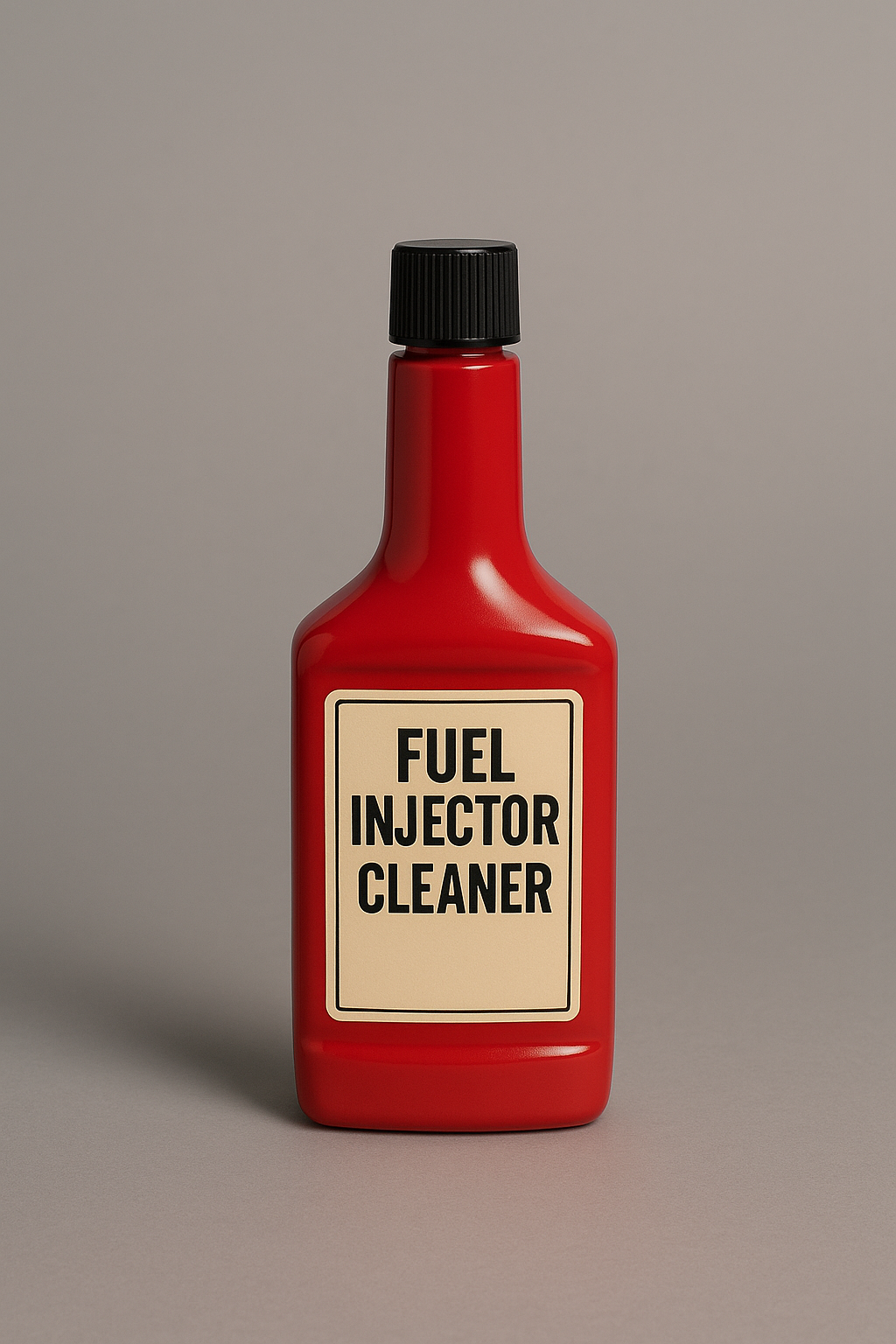
6. How National Fuel Prices Influence Maintenance
When national fuel prices rise, many drivers opt for cheaper fuel or fill up at lesser-known stations. While this can save money in the short term, lower-quality fuel may contain more impurities, water, or fewer cleaning additives. This can:
- Wear out the fuel pump faster
- Clog the fuel filter sooner
- Increase carbon buildup in injectors
During high-price periods, investing in preventive maintenance—like replacing filters more often or using injector cleaner—can protect your fuel system from costly repairs.
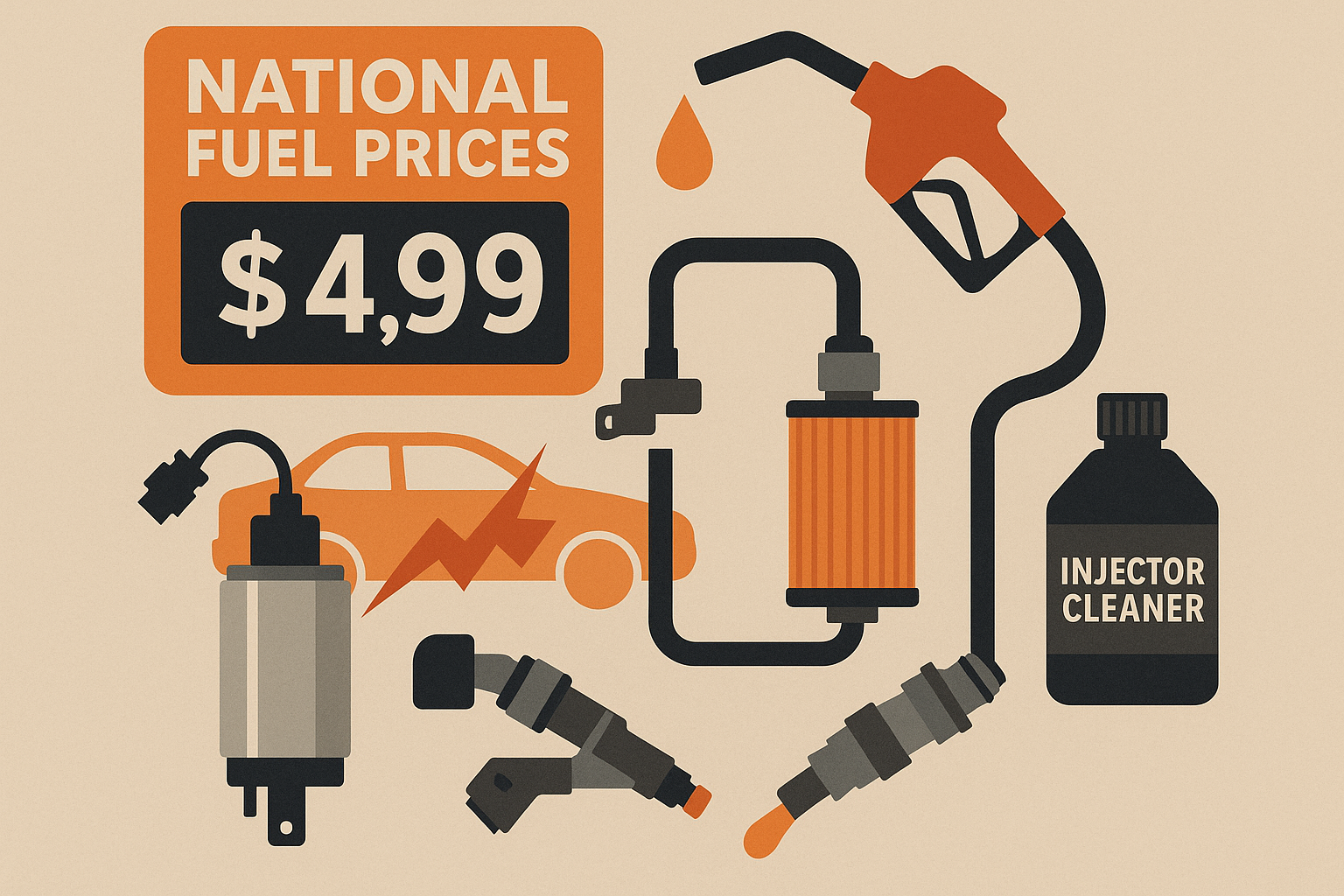
7. Specialty Fuels Like G Fuel: Do They Help?
While G Fuel is commonly recognized as a performance energy drink, in the automotive context, specialty performance fuels serve a similar purpose: optimizing performance and efficiency. These fuels often have higher octane ratings, cleaner-burning formulas, and more detergents to keep your system clean.
Advantages of performance fuels:
- Reduce carbon deposits
- Improve combustion efficiency
- Enhance acceleration and power output
- Lower long-term maintenance costs
However, performance fuels cost more per gallon, so using them selectively—such as before long trips or during performance driving—can balance performance with affordability.
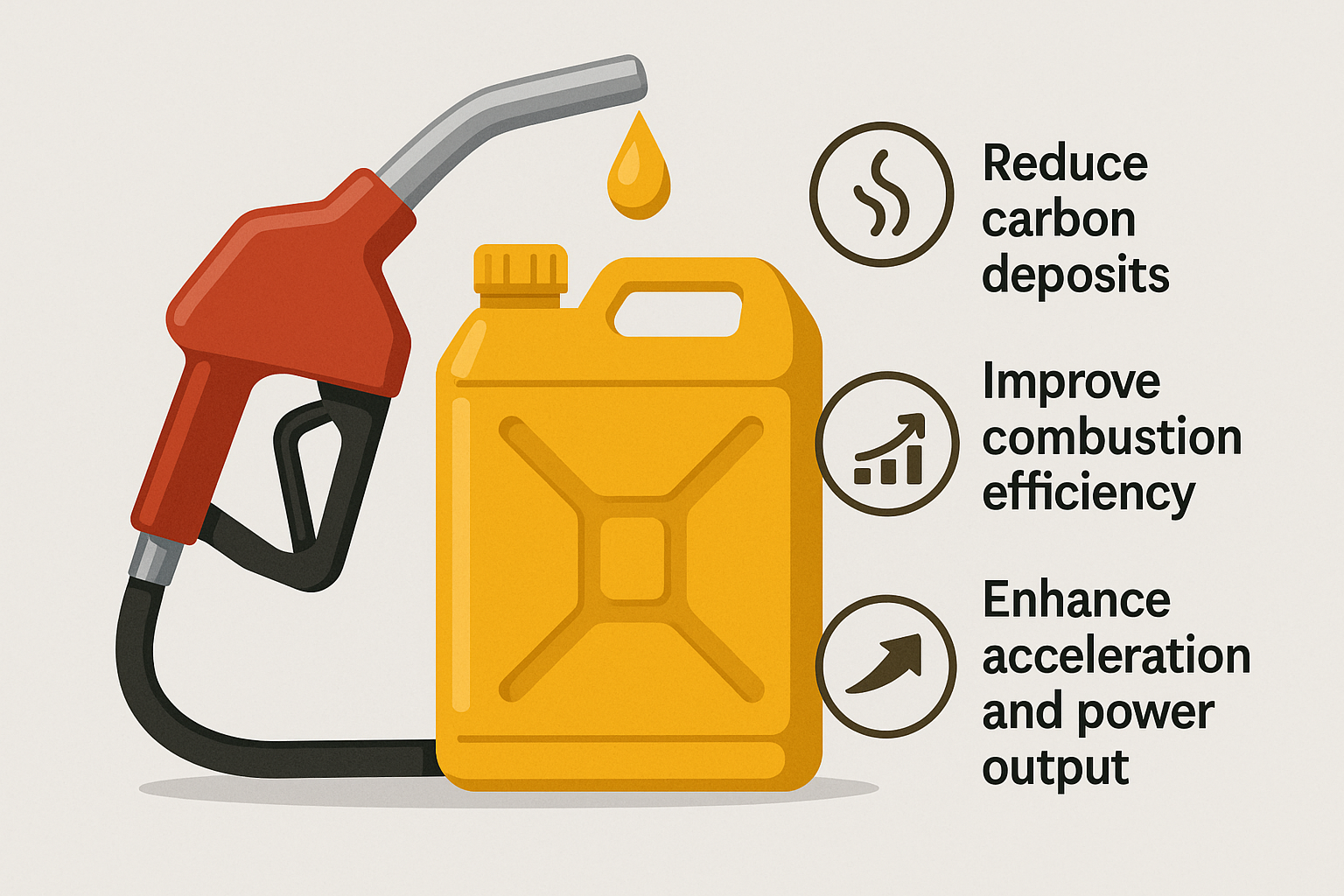
Final Thoughts
Your vehicle’s fuel system—from the fuel pump to the fuel injector cleaner—is a finely tuned network that directly impacts performance, efficiency, and reliability. By using quality fuel, maintaining your fuel filter, and keeping your fuel injectors clean, you can extend the life of your car and avoid costly breakdowns.
Even as national fuel prices fluctuate, the right maintenance habits will ensure your car runs smoothly. And while performance fuels like G Fuel or premium blends may cost more upfront, they can save you money by reducing wear on your fuel system components.
At NexgenWheels, we believe a healthy fuel system isn’t just about getting from point A to point B—it’s about ensuring every drive is as efficient, powerful, and trouble-free as possible.
